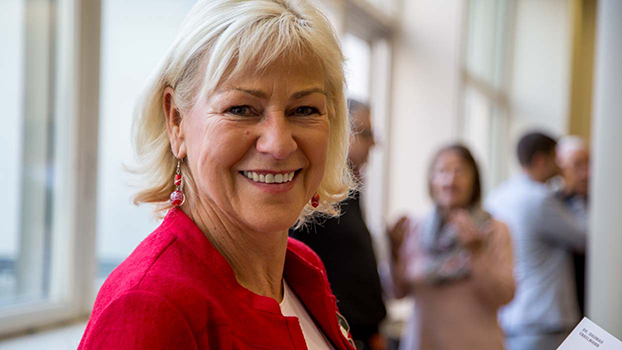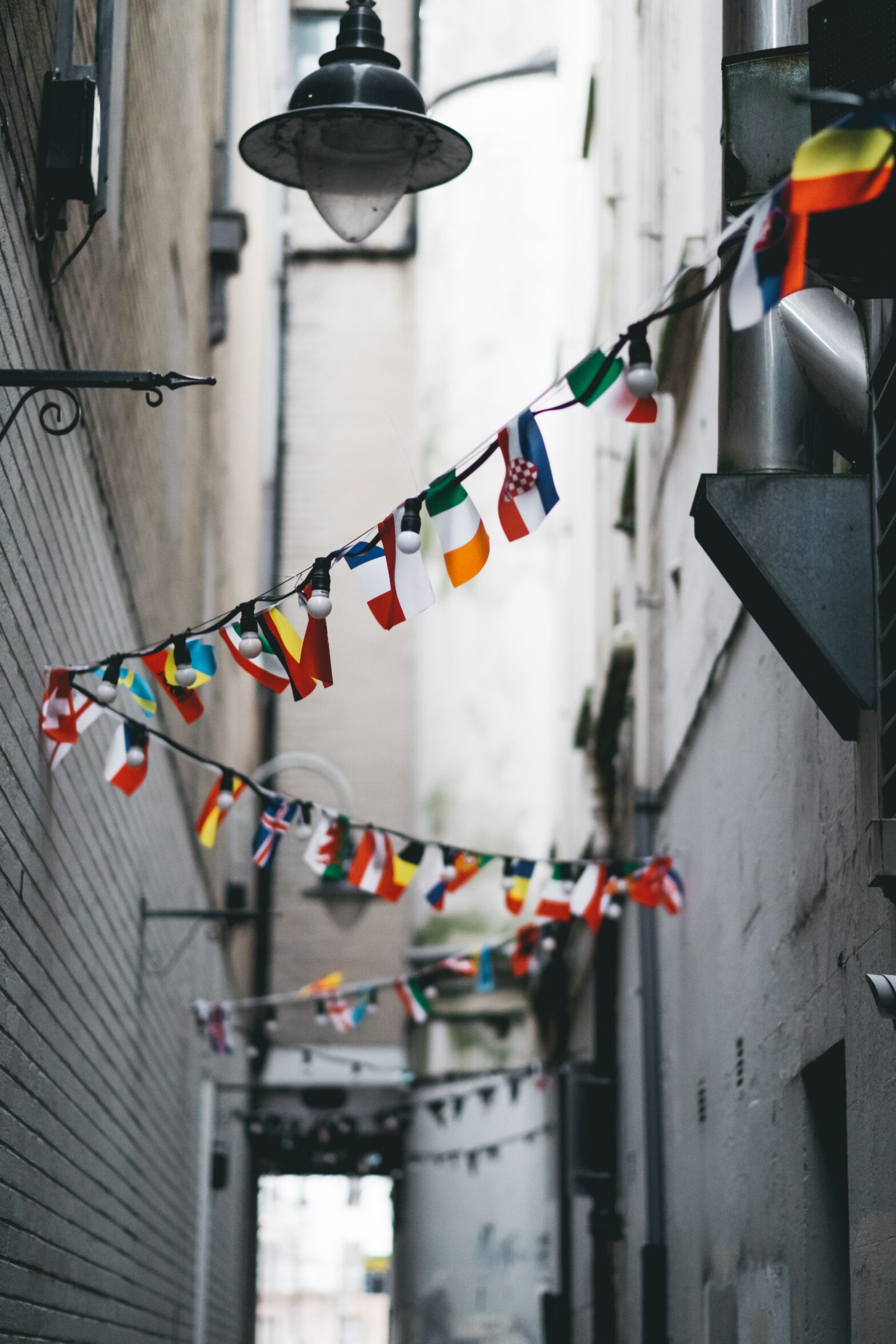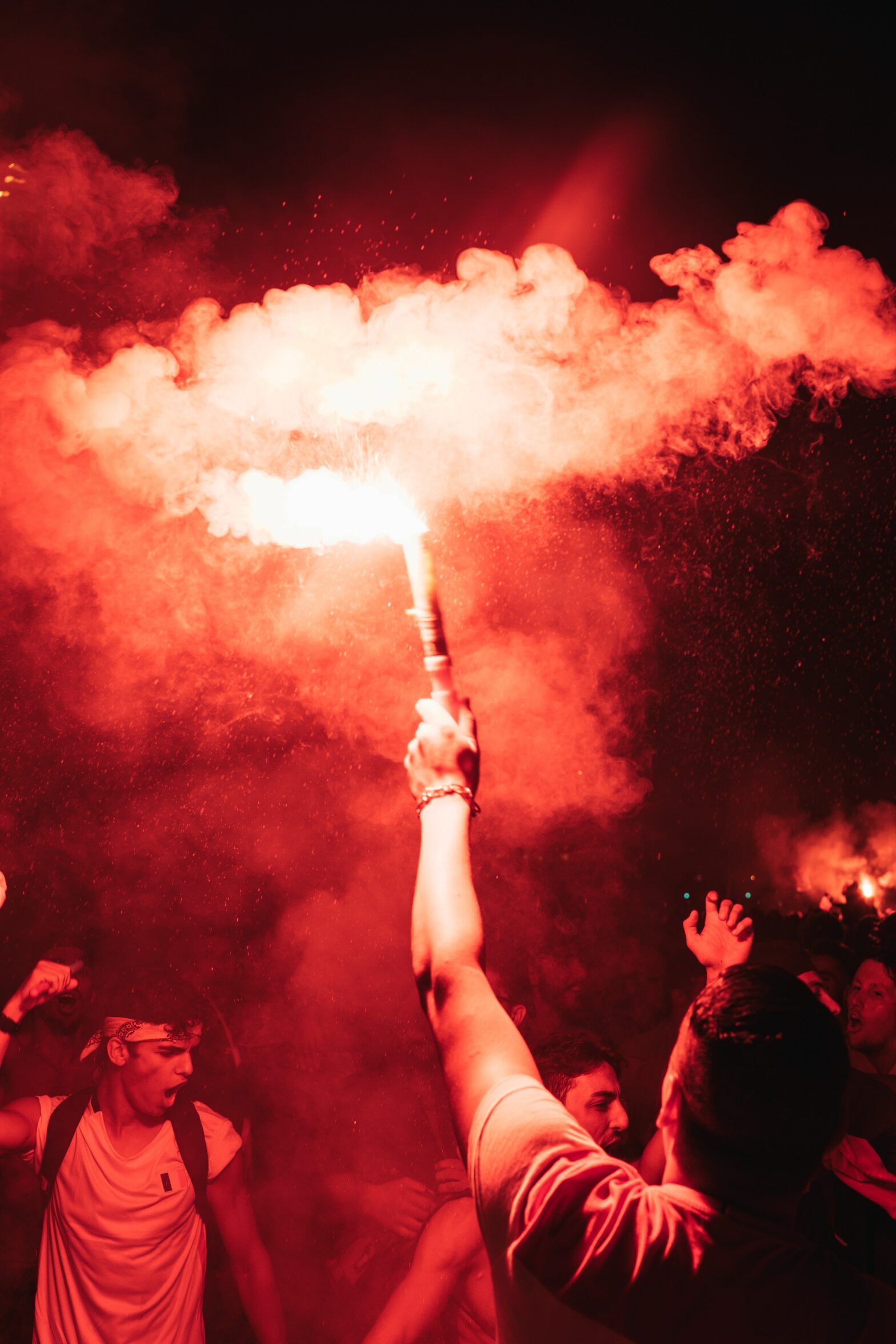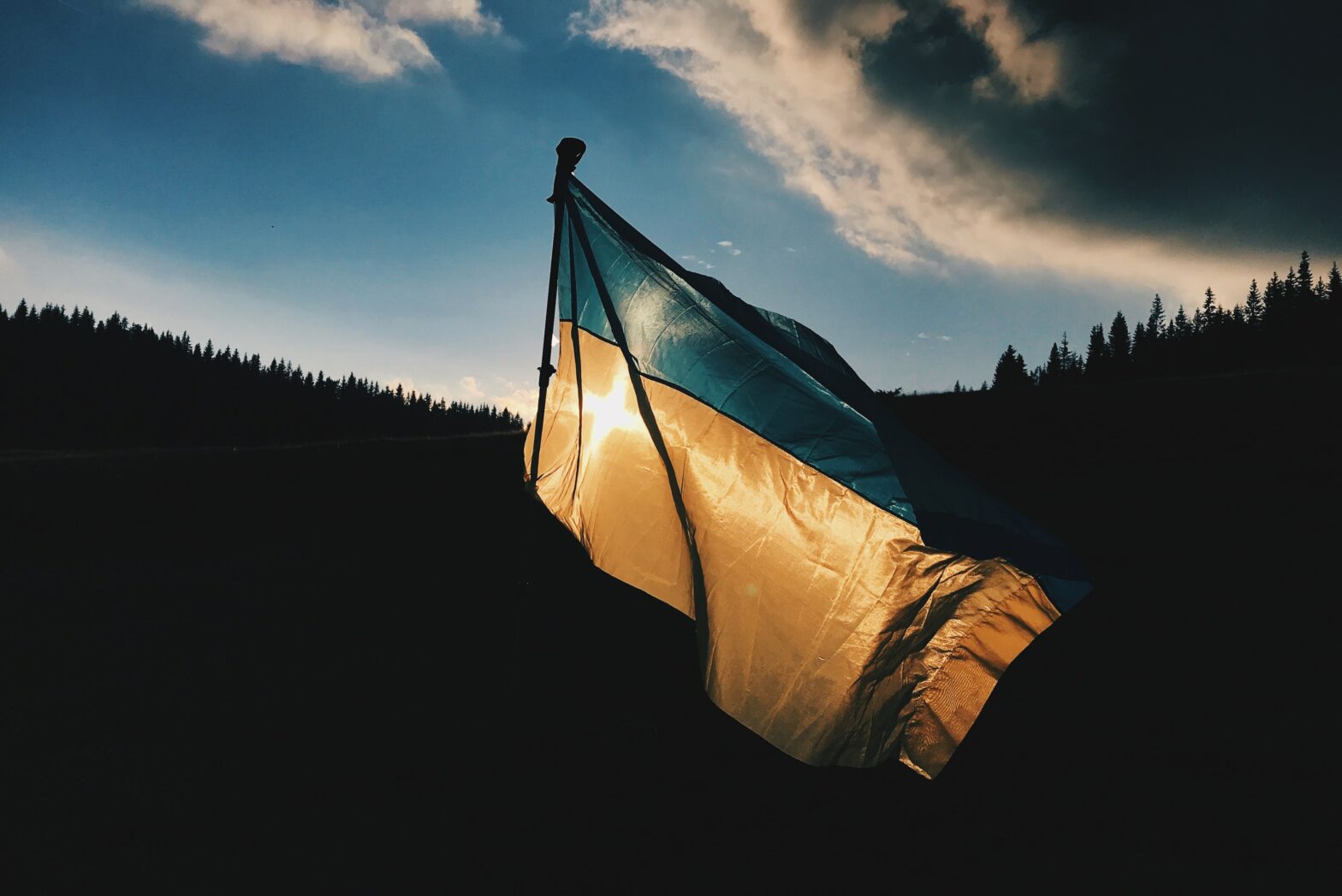Partager Twitter Facebook Email Copy URL
In conversation with Dagmar Enkelmann, Chair of the Rosa-Luxemburg-Stiftung – en anglais !

This fall marked the 30-year anniversary of the fall of the Berlin Wall and the collapse of state socialism across the Eastern Bloc. As an institution with close links to East German history and society, the Rosa-Luxemburg-Stiftung commemorated this year’s anniversary with a number of events, exhibitions, and publications covering all kinds of related topics.
The current Chair of the RLS Executive Board, Dagmar Enkelmann, was herself active in the movement in 1989 in East Berlin, where she joined one of the so-called “round tables” between government representatives and activists from the opposition. Earlier this year she also published an edited volume on the lives of women in the German Democratic Republic, Emanzipiert und Stark. Frauen aus der DDR, together with Dirk Külow. She spoke with Hana Pfennig, Senior Advisor for Global Communication at the RLS, about her experiences back then and what she draws from them today.
HP: Dagmar, 30 years on the events of 1989 are still on everyone’s lips. You were a witness to this historic chapter. Where were you at the time, and how did you experience 1989, particularly the autumn?
DE: It’s a pretty strange situation right now. There are plenty of television shows depicting people celebrating as the Wall fell. But what the media portrayal often omits is the story behind what led to the fall of the Wall: this window of opportunity for another society that opened up for just a brief moment.
In the relatively short phase of a free and open society, we experimented with a whole range of different democratic forms. We went to discussion forums, demonstrated, sat at round tables, all of that. Many people became politically active during this period, such as those who demonstrated at Alexanderplatz in Berlin on 4 November 1989. They wanted a different GDR, they wanted democratic and ecological socialism.
That goes for me too. Back then I had the feeling that I had a responsibility to get involved, that I could help shape things, that I no longer had to be afraid of expressing my opinion. That’s the stuff that doesn’t get enough airtime in the portrayals of those events at the moment.
For many involved in the events of 1989, the era was synonymous with a whole range of forms of democratic action, as well as an attempt to reform socialism. You mentioned the roundtables and took part in them yourself. Can you tell us a bit about them? What did they stand for, what topics were discussed there?
First and foremost, there was the central Round Table here in Berlin. What was interesting about its makeup was that the size of the organizations was irrelevant. Everyone was given the same amount of votes. The old organizations like the Kulturbund and the Freie Deutsche Jugend were involved, but also those that were just forming at that time, like the Greens.
Roundtables also existed at city or district levels. I participated in the roundtable in my hometown of Bernau. Each organization was allowed three representatives; we all treated each other with mutual respect. We discussed which topics were most important to us and everybody else. Central to these discussions was education and its de-ideologization. How could we make it so that young people would be able to talk freely and openly about themselves and their ideas?
There was a lot of discussion, but relatively few decisions were made. That was one of the main problems with the roundtables. At the same time, there were elected local councils and their representatives, which went all the way up to the former East German parliament. In this regard, we were not democratically legitimized and had no decision-making powers. Nonetheless, the fact that we felt free to talk about everything and to hear the perspectives of new political groups made it an incredibly interesting and exciting time.
Thirty years later, it’s clear that the “End of History” proclaimed by Francis Fukuyama failed to materialize. Globalized capitalism offers no solutions to the most pressing problems facing humankind today, neither in Europe nor in the Global South. Are there any approaches to grassroots democratic socialism from that time that you think can be developed and become relevant again today?
I think there was a lack of an overall vision for the time after the fall, due to the fact that there was only a short period of time to think about how to change society. But people certainly tried to develop approaches to questions such as how to involve citizens in decision-making. Many people felt it was important that anybody who felt that they had something to contribute on a certain issue be brought into the fold, regardless of which party or group they belonged to. It is difficult to imagine a more democratic approach.
Environmental protection and conservation were central issues for us. In the GDR everybody thought that social problems could only be solved by first taking care of the economy. The environmental damage that resulted was considered secondary. In Bernau, a number of sites belonged to the Soviet Army. There was a tank regiment stationed in my neighbourhood, for example. They would dump used oil there without any regulation or oversight. There was also a large cement plant near Bernau in Rüdersdorf. Everything was completely grey and smoggy when you drove through the town, and you couldn’t even hang your laundry outside. There you could really see that environmental protection was neglected, but you weren’t really allowed to talk about it, because it would have allegedly harmed the GDR.
We also talked about possible abuses of public office. Not just in terms of corruption or individuals enriching themselves through their office, but also the role the party played in making certain decisions. The party’s interference in legal matters or deciding on whether someone was admitted to pre-university classes are examples of this. All this was discussed openly at the roundtables.
If you break it down to the question of what kind of socialism people imagined, there was the consensus that socialism in the GDR was inadequate in many respects and that it had to change. But what this “change” ought to consist of was completely open.
This applies to economic issues in particular. We all agreed that it did not make sense to socialize all economic structures and to make everything state property, as was the case in the early 1970s in the GDR, with only a few exceptions. What we meant by diversity of forms of ownership or economic democracy, for example, were all questions that we hadn’t yet resolved. Unfortunately, there was not enough time to complete these discussions.
The issues facing us today are similar: we’re fighting for various forms of participation and democracy, and are confronted with climate change.
I am glad that we are once again discussing why capitalism has failed and no longer whether. I think the answer is clear. Nowadays, people are openly saying that this form of capitalism is unable to resolve the existential and ecological questions facing society, and that things cannot go on as they are. The fact that the Fridays for Future movement is propounding “system change, not climate change” is an expression of this. I am glad that there is a renewed willingness and courage to talk about socialism. It is not that important to me whether people talk about “green” or “democratic” socialism. In my opinion, any socialism that isn’t green and democratic is no socialism at all.
There is now a willingness to think about these issues: How can we get there, even without revolution? I don’t think that he German mentality is very open to revolution. But this should not prevent us from asking what paths lead to what we understand by socio-ecological transformation? How could this society develop? How can we move from private property to socialization?
I think it is good that we are now openly discussing socialization when it comes to the provision of crucial public services, such as housing or the energy industry. That this is no longer a taboo, but that we are asking ourselves how we can move towards placing these institutions in public hands, under local control, for example by breaking up the big energy companies. The fact that we can talk about all of this now makes me optimistic. Today we can build on the things we tried out in that very small window of time in 1989.
1989 was also a turning point worldwide (as we will describe in more detail in the forthcoming issue of maldekstra on the “Global 1989”). As Chair of the RLS, you are actively in contact with our international offices and have the opportunity to speak withmany of the foundation’s local partners. How are the upheavals and turning points of 1989 seen in these contexts?
Looking beyond our national horizon to see what ideas for social alternatives exist in other countries is really one of my most exciting tasks as Chair, and there are many! I recently visited Argentina, where we set up a new office. One of the focal points of our work there will be advancing a feminist standpoint. Finding alternatives to extractivism and the overexploitation of natural resources also play a major role. How can this be connected with existing experiences of transformation?
We have also opened a new office in Central Asia. The collapse of the socialist system in this region has given it a specific experience of transformation, and in many ways is similar to that of the GDR. By drawing on ideas that have emerged in these transitional periods, our international work provides us with a wide range of references we can use to think through alternative visions of society.
When I am abroad, people often ask me about my experiences in East Germany. We always take knowledge of post-war German history for granted, when in reality a lot of people know very little about this time. Then come the first questions: Why were there two German states? Why was there a wall between them? You have to explain that along with all the consequences that had for people’s lives, the way families were torn apart and so on.
Then there is the question of whether something new emerged after the fall of the Berlin Wall. In this case it is important to point out that attempts were made to do exactly that. For example, the central Round Table issued an initiative to draft a constitution for the new Germany. This draft constitution was discussed in the Bundestag but was never implemented.
However, it is important to remember such democratic initiatives and to relate them to some current developments. I see parallels with what is happening in Chile right now: the sense of rebellion, courage and motivation shown by the people to take to the streets and develop their own ideas. In what ways does society have to change? This is something we can develop together in cases where there are a range of potential allies who want to do just that. And that is what I think we should do.
As an organization working across the globe, how can we work together with our international partners to translate these approaches, which were discussed then and are (still) relevant today, into the year 2019?
Well first of all, I think it’s great that we work with our international partners as equals. It’s important for us to find out what issues our local partners are facing, find out about their experiences, including their experiences of conflict and resistance. And conversely, they want to hear from us. We learn from each other, and I think that’s a good thing.
I was particularly impressed by a particular example from Latin America, an indigenous mayor of a fairly large city in northern Ecuador. His work reminded me of what we wanted at the time but unfortunately were unable to achieve. Take, for example, his model of accountability: once a week he goes to a private radio station, purchases one hour of broadcasting time there and gives an account of the work he has done during the week. Then he gets guests to join him, talks to them about various topics and tells them what he intends to do next week. I was very lucky to be on a radio show with him. He also announced that we were visiting on air. Throughout the rest of our stay, people in the city who had heard about us on the radio greeted us and told us they appreciated our visit. He also developed a regional market, which many people praised him for wherever we went. He has an incredible reputation.
That kind of openness and accountability that displays such a close connection with people—that was so important to us back then. I think it is crucial for our international work to learn from such experiences, as well as from the failure of the GDR at that time.
Dagmar Enkelmann is the Chair of the Rosa-Luxemburg-Stiftung’s Executive Board. She spoke with Hana Pfennig of the Centre for International Dialogue and Cooperation.



